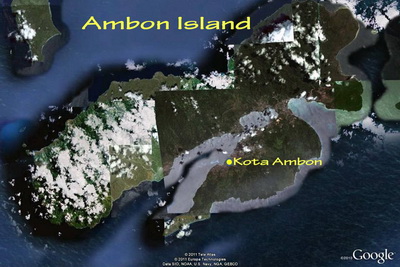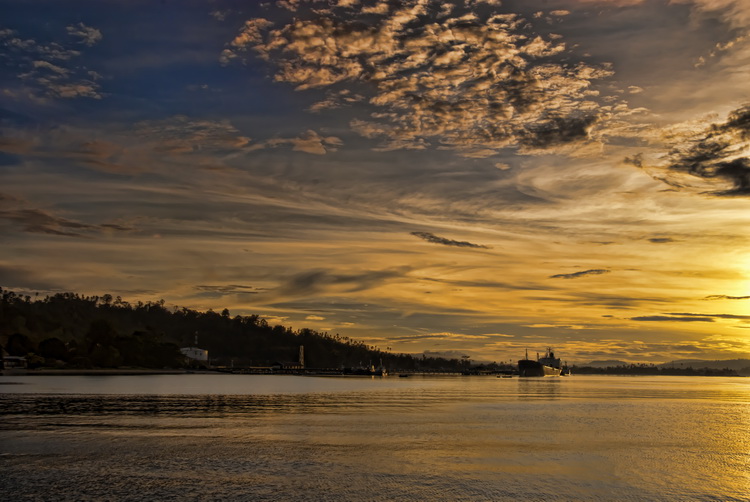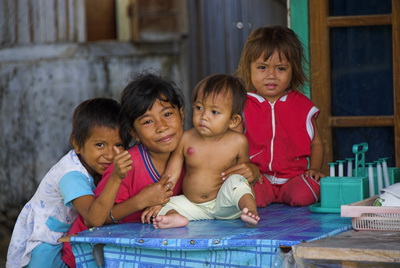
Ambon Island is the capital of Maluku Province and its main town, Kota Ambon is the largest and most developed in the region.
In the 17th century when the spice trade was at its peak and the Dutch monopoly on cloves its strongest, they made Kota Ambon their base in the Moluccas because of its superb natural harbor offered, and the town was known as the “Queen of the East”.
While it is still possible to find the odd legacy of those days, most of the Dutch colonial era buildings were destroyed during the WWII battle for Ambon between the Allied forces and the Japanese.
The buildings that replaced the Dutch colonial ones lack their charm & character and today’s Kota Ambon resembles many other Indonesian cities, but its beautiful harbor does make a huge difference and the backdrop of heavily forested mountains creates a very pleasant vista particularly in the early morning or late afternoon.

Diving Indonesia: Maluku Province – Ambon & “The Troubles”

Indonesia has the largest population of Muslims in the world, with some 86% of its total population of almost 250m following Islam.
It also hosts the largest Hindu population outside of India, resident on the island of Bali, and the island of Ambon and the surrounding Maluku province hosts a significant number of Christians.
The Christians are a legacy from the colonial days, but in the 1920’s the Dutch introduced a policy called Transmigration, whereby workers from the densely populated main island of Java were “encouraged” to work on plantations in Sumatra and other locations.
Post-independence, the Suharto regime revived the policy as “transmigrasi” whereby whole families were given financial inducements to relocate from Java to areas such as Ambon and West Papua.
In Ambon the transmigrasi migrants grew into a significant block of Muslims, who established their own village kampungs alongside Christian ones. The two religions coexisted reasonably peacefully until Christmas 1999, which coincided with the end of the Muslim holy month of Ramadan, when a combination of circumstances came together and were ignited by of all things, a traffic accident between a Christian bus driver and a Muslim youth.
The subsequent riots and civil unrest escalated into what became known as “the troubles” and resulted in the area being effectively closed to all foreigners, as the Indonesian Army moved in to seize control and restore order.
It took well over two years before tempers cooled and order was fully restored, but by 2004 a strong recovery was under way aided by significant investments into the area by the Indonesian government.
Next Page: Scuba Diving in Ambon
Back To: Overview of Maluku Province
